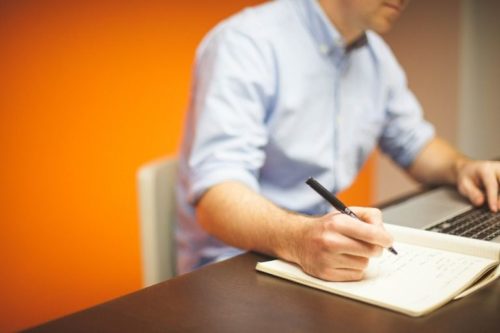If you have ever biked on a Georgia road, you know that bikes and cars are a dangerous combination. Of course, if you’re injured after riding on one of those roads, you’re probably wondering what to do after a bike accident.
Here are the steps you should follow after your accident and why it’s essential to contact an experienced Georgia bicycle accident attorney soon after.
To book your free consultation, contact us at (770) 988-5252 or complete our contact form.
What to Do After a Georgia Bike Accident
While the aftermath of a bike accident may be overwhelming, it’s important to remember that the steps below help build a stronger claim.
The longer you wait to record information about the accident, the more context you lose when you go to request compensation.
In general, these are the best steps to take following a bike accident: what to do, how to do it, and why.
1. Call 911 and Wait for the Police

It is crucial that you call 911 (or the local police department) to make sure that the police arrive at your scene and file a proper police report, even if you do not believe you are injured.
It is easy to be in shock after an accident and not feel an injury until hours after an accident. Also, sometimes minor injuries develop into more serious or permanent conditions. Staying at the accident scene and waiting on police also ensures you have the contact information of the other driver.
Negotiating with the driver is never a good idea. Some drivers may apologize or accept the fault of the accident, but later turn and deny their negligence or even their presence at the accident.
Another advantage of waiting for the police to arrive at the scene of the bicycle accident is that the police might go ahead and ticket the driver. This could prove useful if you need to file a claim or settle a case with the insurance company.
2. Tell Your Side of the Story
When the police arrive, be sure to speak up and tell your side of the story. Sometimes, a police officer might take a statement from the person driving the car and neglect to talk to the cyclist. Make an effort to speak with the police officer and make sure he or she takes your statement. Remember to report your injuries, also, even if they still seem minor at the time.
You never know when those injuries will develop into something more serious and it’s better to be safe than sorry.
If the police refuse to include your side of the story in the statement, you can always ask to have the report amended later.
3. Request an Accident Report Number
When the police show up, they usually collect statements to create an accident report. It’s imperative that you request the accident report number from the officer at the scene.
Here’s what is generally included in a bike accident report and why you may want a copy:
- Date, time, and location of the incident;
- Identification of the parties involved;
- Vehicle information (e.g., VIN, make, model, etc.);
- Any injuries or damages reported;
- Citations issued to any parties; and
- Weather/road conditions.
This information is invaluable for building your case. It not only provides an official record of the bike accident, but also captures necessary information for filing your claim. While it’s not usually available immediately after the accident, you can get a copy of the report later from the police department with the report number in hand.
4. Gather Contact Information

You need to obtain the name of the automobile driver, along with his or her phone number, address, driver’s license number, car tag number, and insurance information.
If possible, gather names and contact information from everyone at the scene, especially those who witnessed the accident.
The police report may not include all of this information.
If you are injured and cannot gather this information on your own, ask a bystander to help you gather the information.
5. Document The Events
Take a moment to recount what happened in the accident.
How did the accident happen? Where was it? When was it? What were the road, traffic, and weather conditions like?
As soon as possible, write down all of this information for your records. You may need this information later.
6. Seek Medical Care
You need to seek medical care as soon as possible after the bicycle accident, even if your injuries seem minor. If the injuries do become a larger issue, seeking medical attention early will be proof that you sustained injuries in the accident.
The medical records will document the injuries and the extent of your injuries at the time. Also, take photos of any injuries you sustained after the accident.
Keep a journal of your symptoms and keep the journal up to date with notes and photos of your injuries.
7. Preserve The Evidence
If your bicycle or other property was damaged in the accident, do not fix anything or have it inspected.
Take photos of any equipment that was damaged (bike, helmet, clothing, etc.), and keep it in the exact same state it was on the day of your accident.
Do not wash your clothing. Be prepared to send your equipment to your attorney if requested and no one else.
8. Avoid Speaking to the Insurance Company
One common question regarding what to do after a bicycle accident is whether it’s okay to talk to the insurer of the driver.
Generally, speaking to an insurance company after a bike accident before consulting with an attorney is not usually in your best interest.
This is because of several reasons, including:
- Risk of misstatements. In the aftermath of an accident, emotions and stress often run high, leading to potential misstatements or admissions that could be used against you by insurance companies to minimize or deny your claim.
- Low settlement offers. Insurance companies often aim to settle claims quickly and for as little as possible. They may offer a settlement that does not fully cover your medical expenses, lost wages, or pain and suffering.
- Complexity of liability. Determining liability in a bike accident is sometimes complex. Insurance companies may try to shift more blame onto you to reduce their liability.
The insurance may use a variety of tactics to minimize your claim, going as far as to get you to make an admission on a recorded statement. To avoid this risk, speaking to an attorney is often the best course of action.
9. Seek An Attorney
Accidents involving both cars and bikes are a complex legal situation. You will want to seek out a Georgia bicycle accident lawyer who understands bicycle laws and has handled bicycle accident cases in the state.
We can advise you on what to do after your bicycle accident, negotiate with insurance companies on your behalf, or represent you in a lawsuit if needed.
A Georgia Bicycle Accident Attorney Is Your Strongest Advocate
When you are recovering from moderate or extensive injuries, it can be hard to speak up for yourself. It can be tempting to take whatever settlement is offered. This is almost never a good idea. Insurance companies don’t want to pay you a penny more than they must. Getting a good lawyer on your side will give you a strong ally and advocate who can speak on your behalf.
Still Wondering What to Do After a Bike Accident in Georgia? We’re Here to Help
Bike accidents are traumatic, so we understand how emotional the aftermath can be.
If you were injured in a bike crash, we’re here to help you in any way we can. At MG Law, our Georgia injury attorneys have experience with bicycle accidents and are dedicated to helping you focus on recovery. We work hands on to advocate for victims of personal injury at every step of the process, from filing the claim to going to trial if needed.
To schedule a free consultation, give us a call at (770) 988-5252 or fill out our contact form.

